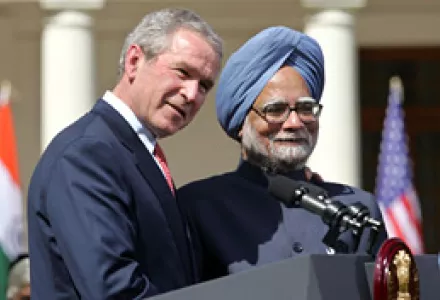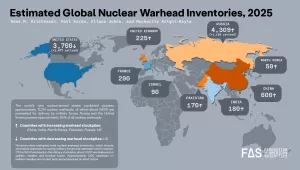How to Get Others to Stop Worrying and Love Your Bomb: India's Nuclear Diplomacy
Seven years after testing nuclear weapons, the United States recognized India as a responsible holder of nuclear weapons. Similarly, in the early 1960s, China was considered to be incapable of deterrence and unwilling to stem proliferation. China is now an integral part of the Nuclear Weapon States club. By investigating the ways in which China and India engaged in the project of reassurance, scholars and policymakers can draw out implications for disarmament and global stability.
PLEASE NOTE NEW LOCATION!
Please join us! Coffee and tea provided. Everyone is welcome, but admittance will be on a first come–first served basis.



